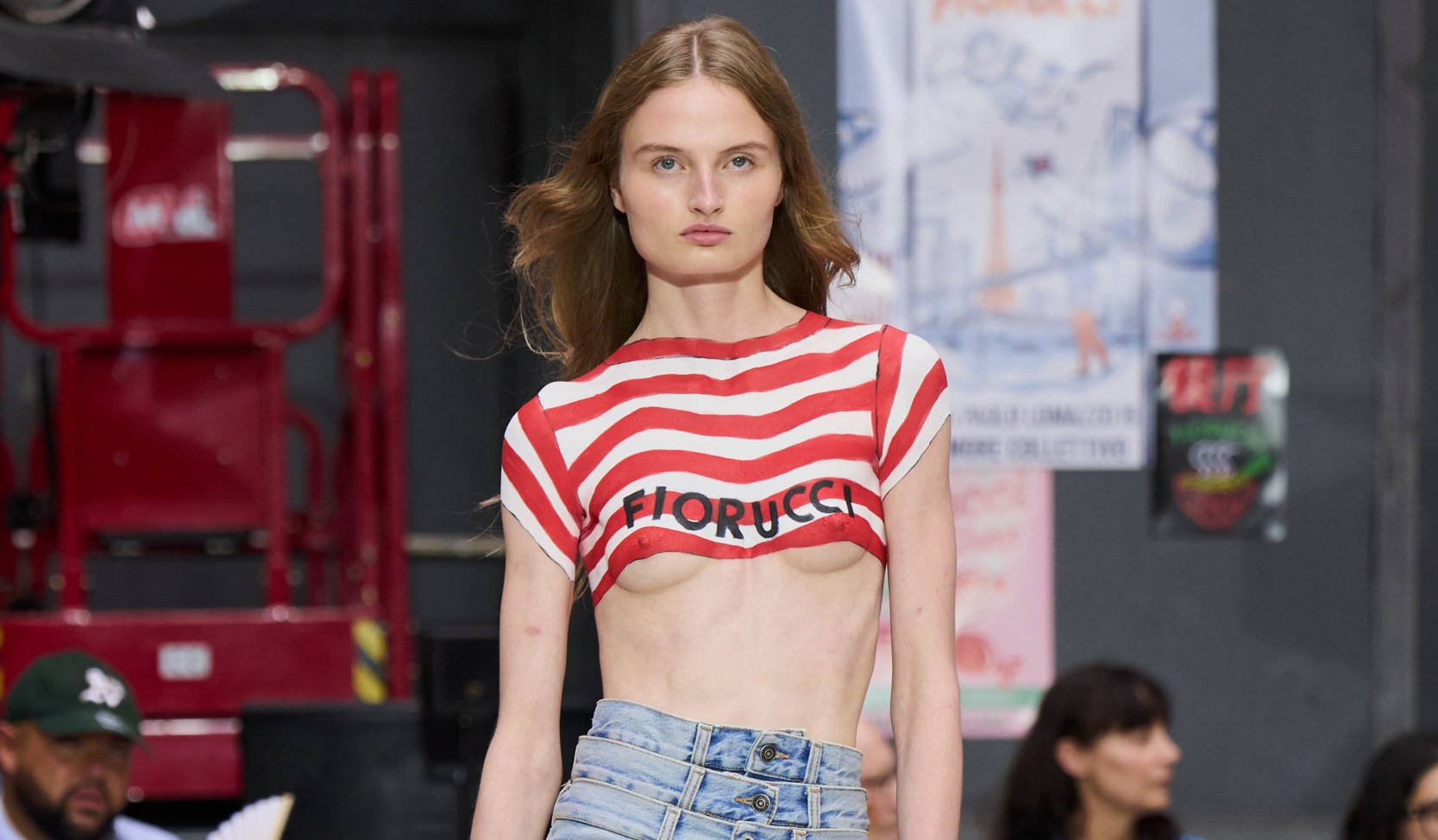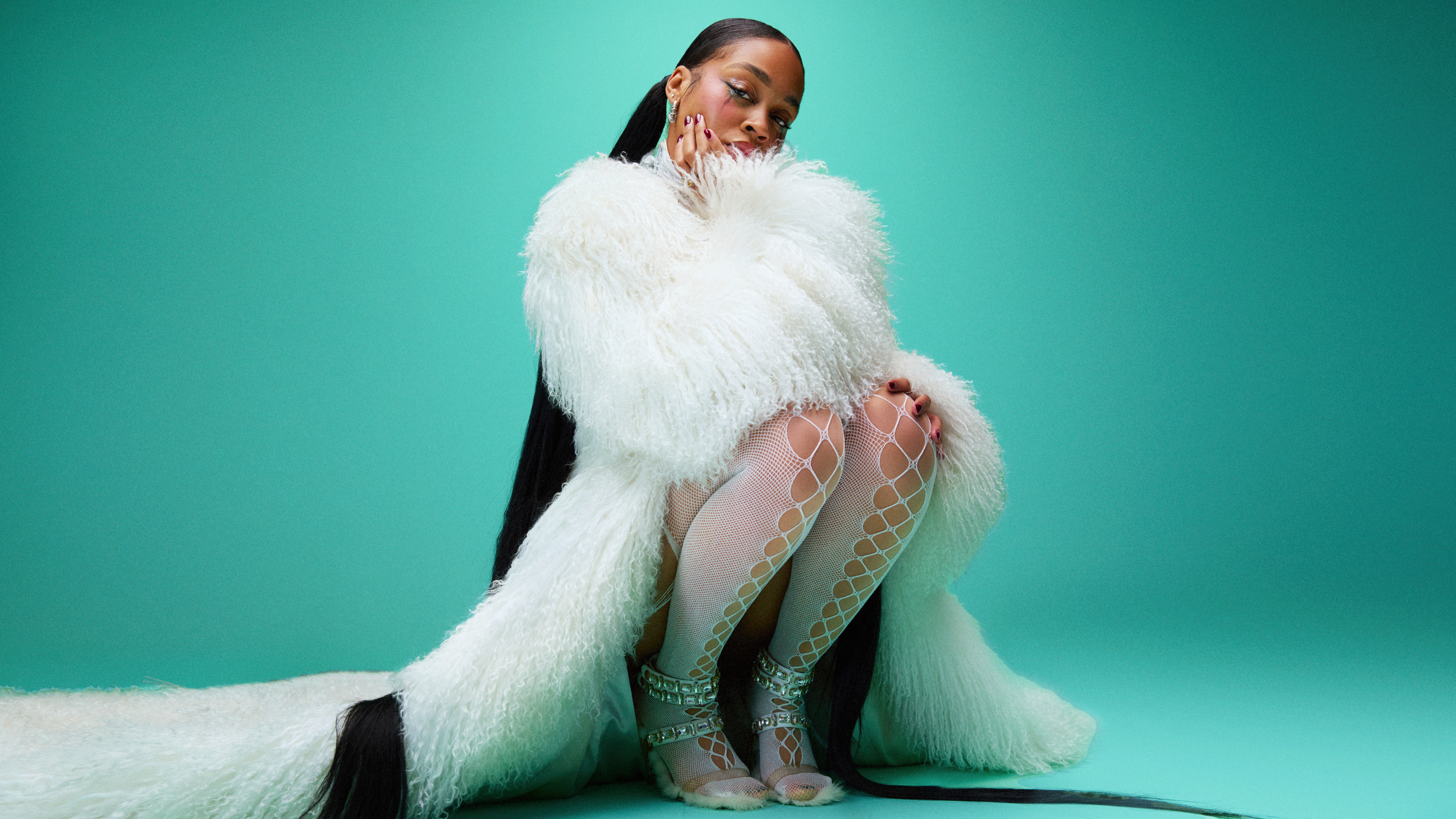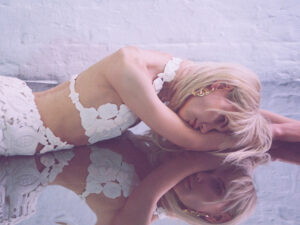In her new film ‘THE FIVE DEVILS’, Léa Mysius reveals dark family secrets in a mysterious, imaginative sphere.
IN CONVERSATION WITH LÉA MYSIUS ON ‘THE FIVE DEVILS’
vor 2 years
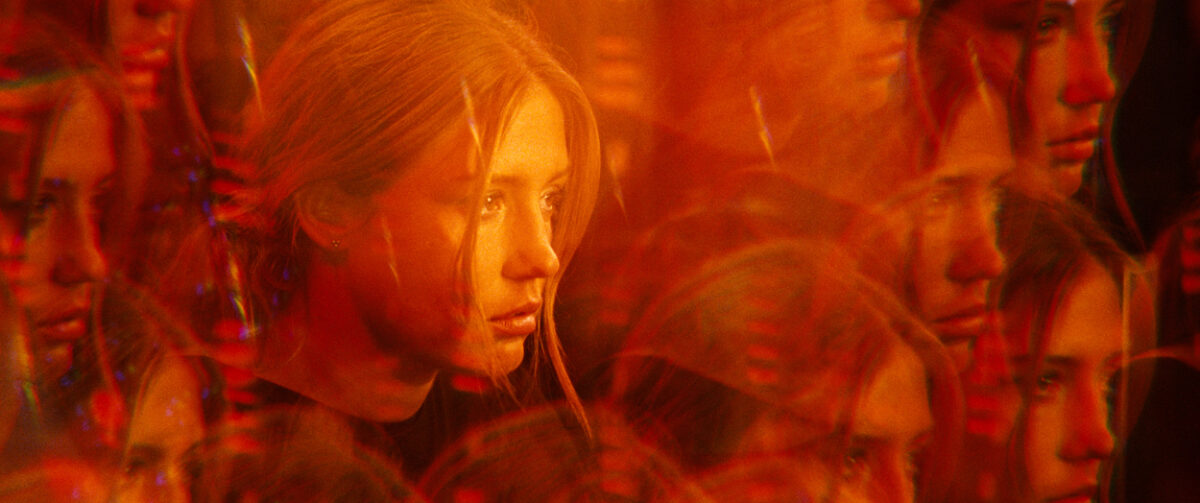
Léa, you made your film debut with ‘Ava’ in 2017, to what extent would you say you have changed and evolved as a person and director in that time?
I hope I have evolved! With ‘The Five Devils’, I wanted to take a lot of risks and try to approach something that works much more on the unconscious and that presents a mosaic narrative with several characters and several temporalities. I think I have evolved as a director on the complexity of the story but also of the mise en scène, especially in relation to movement. And I think I have matured thanks to the experience of directing ‘Ava’ but also of writing with and for many directors who have given me experience by proxy.
I hope I have evolved! With ‘The Five Devils’, I wanted to take a lot of risks and try to approach something that works much more on the unconscious and that presents a mosaic narrative with several characters and several temporalities. I think I have evolved as a director on the complexity of the story but also of the mise en scène, especially in relation to movement. And I think I have matured thanks to the experience of directing ‘Ava’ but also of writing with and for many directors who have given me experience by proxy.
What would you say was your inspiration for ‘THE FIVE DEVILS’, your second feature film, which you both directed and wrote?
I really wanted to start with this idea of a character being obsessed with smells – probably because I am! And that there is a bridge between smells and memories to talk about the fact that we all carry the weight of a past that does not belong to us. The inspirations are multiple and numerous! A lot of literature, especially American (J. Franzen, J. Baldwin, T. Morrison, J. Harrison…) but with the idea of really contextualizing the film in France without plastering on problems from another continent. A lot of cinema too: The Drum, Twin Peaks, Beasts of the Southern Wild, Us… among others. But also a lot of inspiration from people I know or from my own experience.
As you said, a lot of the film is about smells and the memories that go with them, but what fascinates you personally about these and how can they be made ‘tangible’ cinematographically?
What fascinates me is that smells tell us a lot about people and our relationship to the world. We like or dislike the smell of someone, of their mother for example. You can tell if someone is afraid by the smell of their sweat. If this person likes to wash themself with a particular soap, if they saw someone you know just before because he still wears their perfume on them… A whole lot of invisible things but so present if you pay attention to them. The challenge was indeed to film the invisible. We decided to start with very concrete elements, Vicky’s jars, with for example this pink and pearly material which represents Joanne’s smell. Then from these visible elements, Vicky is transported into the past. So the smells create images. And what interested me was that behind these images that are shown, there are also hidden images that emerge in the unconscious and the imagination of each person. That when we leave the projection, new flowers bloom in us.
What is your personal favorite smell and what memory does it evoke in you?
I think my favorite smell is the smell of horse manure. It reminds me of my childhood and the hours I spent riding bareback in the woods with my twin sister doing whatever.
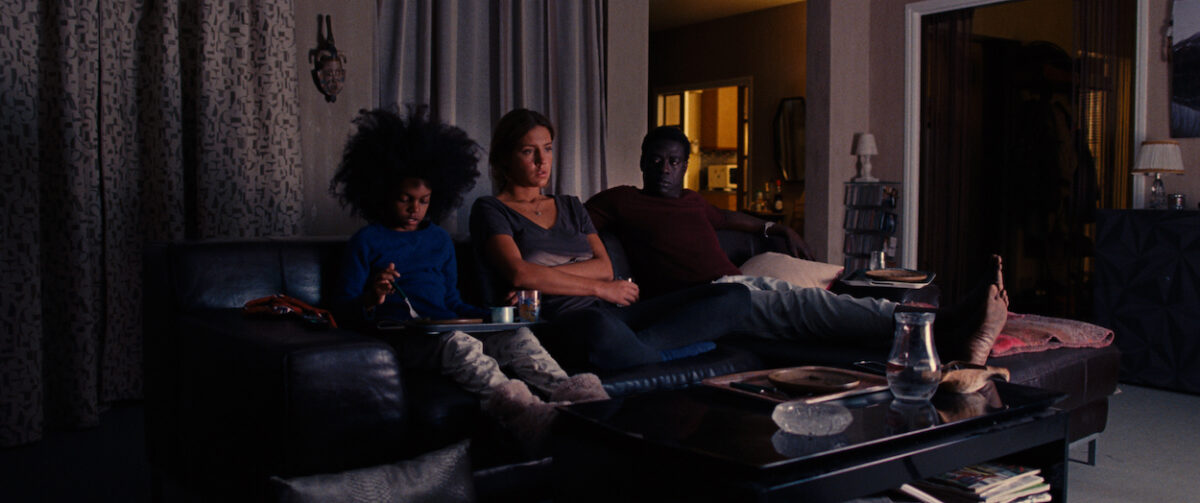
‚THE FIVE DEVILS‘ in five words? – „A raw fantasy tale full of love. There are six words but the “one” does not count.“
The film likewise focuses on a family drama/excessive, delicate mother-daughter relationship (played by Adèle Exarchopoulos and Sally Dramé) – what do you think is the complexity in this relationship in general?
It seems to me that it is in the fact that there is a lot of love but it is expressed in a rather distant way. Joanne loves her daughter but doesn’t really pay attention to her. The image I gave to the actresses was a giraffe going straight ahead while a little parasitic bird comes and pecks at her everywhere without her noticing. For me, this is the mother-daughter couple. This distance creates an anxiety in Vicky, she feels that her mother is far away and that she has to “hold her”. Another image: Joanne is a hot air balloon and Vicky holds the rope that ties her to the ground. As the film progresses, Joanne will blossom by assuming her desire and Vicky will understand that she can let her mother love whoever she wants, that love is not subtracted but added and thus cut the cord.
It seems to me that it is in the fact that there is a lot of love but it is expressed in a rather distant way. Joanne loves her daughter but doesn’t really pay attention to her. The image I gave to the actresses was a giraffe going straight ahead while a little parasitic bird comes and pecks at her everywhere without her noticing. For me, this is the mother-daughter couple. This distance creates an anxiety in Vicky, she feels that her mother is far away and that she has to “hold her”. Another image: Joanne is a hot air balloon and Vicky holds the rope that ties her to the ground. As the film progresses, Joanne will blossom by assuming her desire and Vicky will understand that she can let her mother love whoever she wants, that love is not subtracted but added and thus cut the cord.
Adèle Exarchopoulos was clear to you relatively quickly as the main cast; she was already known for her outstanding performance in 2013’s ‘Blue is a Warm Color’, among other things. What was the decisive reason for choosing the cast in this way? What did you see in Adèle that Joanne had to have?
I love Adele in all the movies she has played in. She is powerful, physical, moving and always right, it’s impressive. I didn’t immediately think of Adele because she is the exact opposite of the character, which is great. Joanne at the beginning of the story is cold, dead inside, really the opposite of what Adele is and it’s only as the film unfolds and the wall Joanne has built to protect herself cracks that her vitality appears. Adele was supposed to control her face, her gestures, not to express anything, until she explodes in the second part of the film. But in the part where she is inward, you can feel that it’s boiling inside her, because it’s Adele and it transpires in her, this vitality, everywhere, even if it’s contained. She is a great actress. On the set, she proposed things, she was always right. She did a lot of preparation to have the athletic physique she has in the film. She also had to be able to play two ages, 17 and 27, and two states: that of the present time where she is wise and extinct in opposition to that of the past where she is incandescent and full of dreams. Adele has the beauty of a miss and at the same time a lot of roughness, nuances, an iconic side but at the same time simple which makes that we are immediately in empathy with her, we recognize ourselves in her. And she has a crazy talent. She really blew me away.
For Vicky (Sally Dramé), much of the film revolves around the question of her own existence and her own place in this world. A whirlpool of thoughts that every child gets into at some point – “was I loved before I was born?” – Is there an answer to this question? And what was it about it that made you so determined to make this question the focus of the film?
Well I didn’t know when I was making the film if there was an answer to that question or not and then I got pregnant and at the beginning of the pregnancy I thought for a while that I had lost the baby. And my partner and I were extremely sad. We both said to ourselves at that moment “This child was loved before their existence because we already love him/her”. I was not aware that this was one of the central questions of the film when I was writing. It was towards the end of the writing process, while rereading Pascal Quignard’s “La Nuit sexuelle”that I realized that Vicky had to ask the question directly. I think it comes from the existential questions I asked myself when I was a child and that everyone asks themselves in their own way I think. For me it was “why am I me and why am I not a squirrel?”
As a result, the strange person who seemed to be her mother before Vicky was born constantly floats around the room, along with the weight of the past. The contrast between the Joanne of the past and the Joanne of the present is very clearly illustrated stylistically and leaves the viewer with the question of what happened to her to end up as she is today and, in my opinion, also subtly highlights the complexity of being a mother and one’s own identity as such. One can also observe that the film presents a strong female point of view in general. Why did you consciously choose this point of view?
Yes, it raises the question of life choices and also of the double identity of mother/woman. Why did you choose a female point of view? Probably because I’m a woman and I’m interested. And I find it politically important to make strong and active female characters and to see on screen questions about femininity and the mother/daughter relationship – but not only!
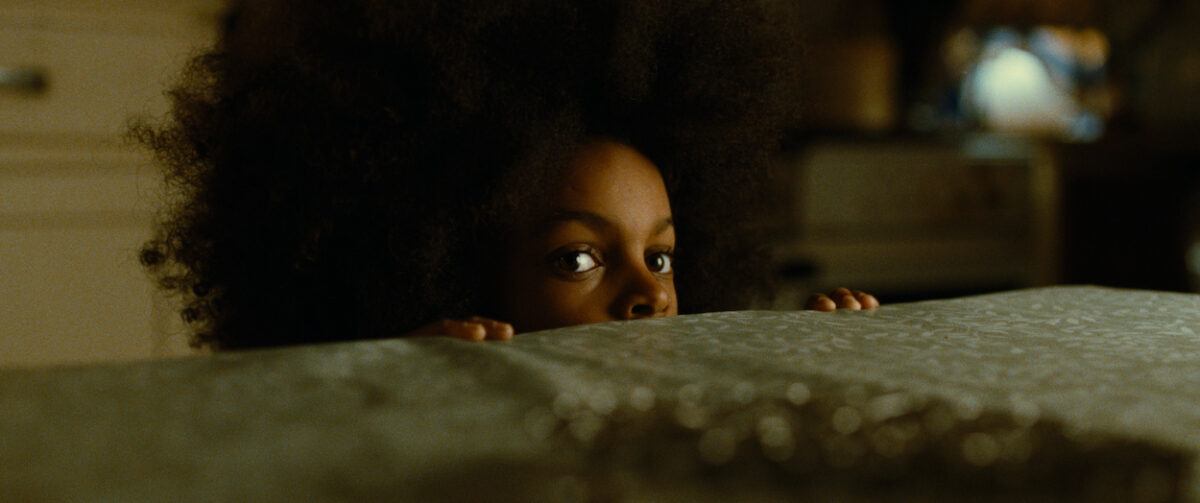
‘THE FIVE DEVILS’ is a multidimensional drama, which in my opinion combines elements of almost every genre and would be hard to classify accordingly if you wanted to do that. Among other things, I see a lot of fantasy and reality, a lot of drama, an essence of unobtrusive horror. Was that a conscious decision or did it just happen that way?
It happened by itself when I was writing. I didn’t say to myself “I’m going to write a fantastic film” for example, I let myself be carried along by the writing and in a desire for freedom, the film became what it is. I remember that it was a very intense moment, like a firework. It gave a film very baroque and at the border of several genres.
It happened by itself when I was writing. I didn’t say to myself “I’m going to write a fantastic film” for example, I let myself be carried along by the writing and in a desire for freedom, the film became what it is. I remember that it was a very intense moment, like a firework. It gave a film very baroque and at the border of several genres.
You also find great meaning in many small details in the film – and many unanswered questions. If you now look at the entire film – what is your personally most emotional scene? And is there one thing you took away from the film for yourself?
The most moving scene for me is the karaoke. Because it’s the moment when all the characters fully exist, we know them, we know how they feel and Joanne is going to choose to go and sing with Julia and therefore make a real life choice almost. And this is the moment when Adele completely found the character of Joanne on the set. All of a sudden she was in charge of Joanne’s past, present and future, it was her and it was extremely moving.
What I remembered from the film is related to motherhood. Before I made The Five Devils I didn’t have a child. Since then I have had a daughter and I realized that Joanne was very similar to me in many ways, although I was not aware of it at all, since I did not have a child yet. It’s like I sensed it. So I try not to be like her, not to have this strange distance with my daughter.
And what was the biggest challenge?
Editing I think. How to find the balance between all these disparate elements and make a film that is at the same time pop, playful but also anguished and deep.
Vicky has this gift of being able to recognize and reproduce smells. A gift that eventually evolves to make connections to the past. If you could choose one gift, what would it be?
To be able to spend some time in other people’s heads to see how they see the world, how they feel things, think, etc. And come back to my body afterwards. But I already do that as a scriptwriter for other directors…
Interview by Carolin Desiree Becker
Credit: MUBI
‘THE FIVE DEVILS’ is in cinemas from the 13th of April
